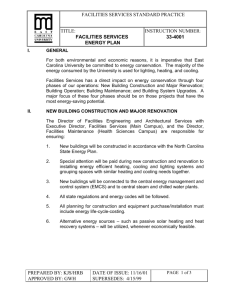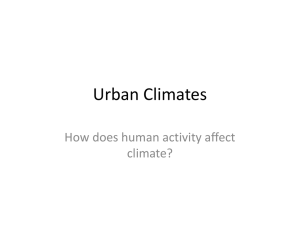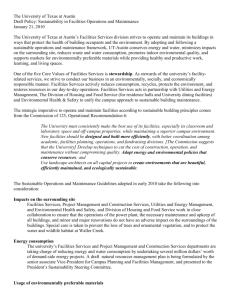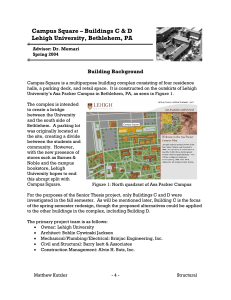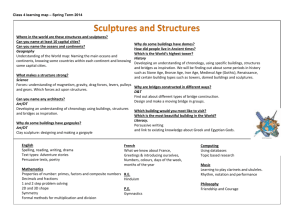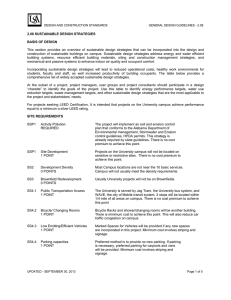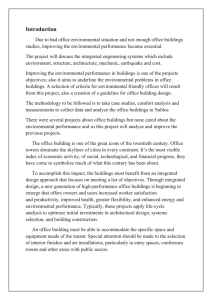Why is the University implementing this policy? The University is
advertisement
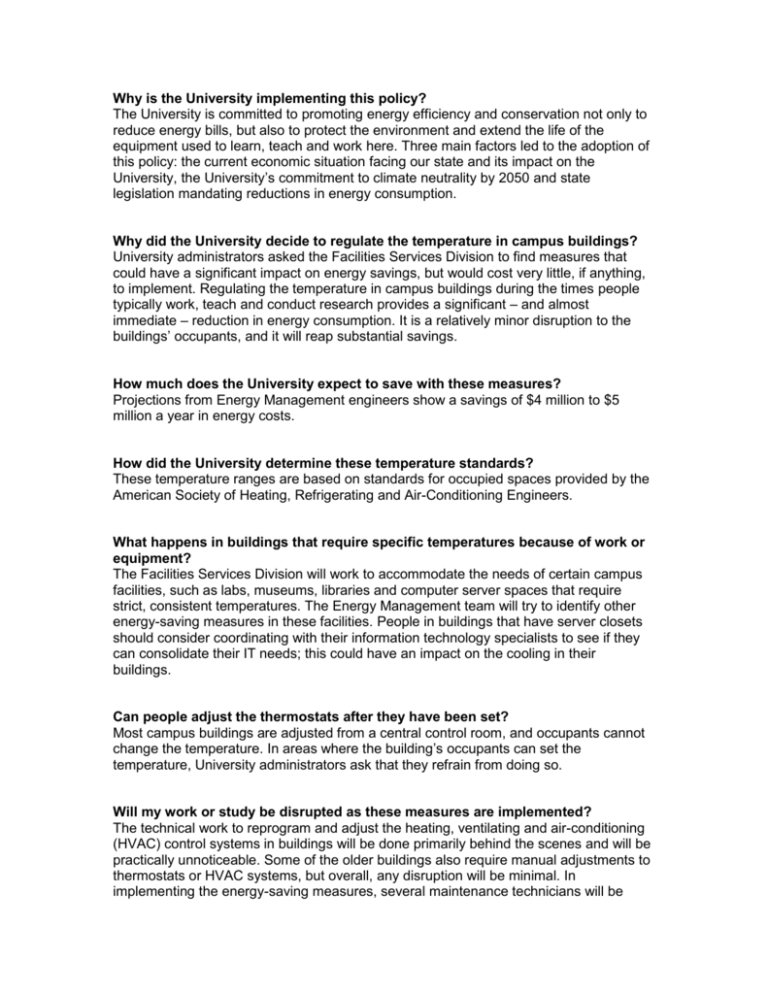
Why is the University implementing this policy? The University is committed to promoting energy efficiency and conservation not only to reduce energy bills, but also to protect the environment and extend the life of the equipment used to learn, teach and work here. Three main factors led to the adoption of this policy: the current economic situation facing our state and its impact on the University, the University’s commitment to climate neutrality by 2050 and state legislation mandating reductions in energy consumption. Why did the University decide to regulate the temperature in campus buildings? University administrators asked the Facilities Services Division to find measures that could have a significant impact on energy savings, but would cost very little, if anything, to implement. Regulating the temperature in campus buildings during the times people typically work, teach and conduct research provides a significant – and almost immediate – reduction in energy consumption. It is a relatively minor disruption to the buildings’ occupants, and it will reap substantial savings. How much does the University expect to save with these measures? Projections from Energy Management engineers show a savings of $4 million to $5 million a year in energy costs. How did the University determine these temperature standards? These temperature ranges are based on standards for occupied spaces provided by the American Society of Heating, Refrigerating and Air-Conditioning Engineers. What happens in buildings that require specific temperatures because of work or equipment? The Facilities Services Division will work to accommodate the needs of certain campus facilities, such as labs, museums, libraries and computer server spaces that require strict, consistent temperatures. The Energy Management team will try to identify other energy-saving measures in these facilities. People in buildings that have server closets should consider coordinating with their information technology specialists to see if they can consolidate their IT needs; this could have an impact on the cooling in their buildings. Can people adjust the thermostats after they have been set? Most campus buildings are adjusted from a central control room, and occupants cannot change the temperature. In areas where the building’s occupants can set the temperature, University administrators ask that they refrain from doing so. Will my work or study be disrupted as these measures are implemented? The technical work to reprogram and adjust the heating, ventilating and air-conditioning (HVAC) control systems in buildings will be done primarily behind the scenes and will be practically unnoticeable. Some of the older buildings also require manual adjustments to thermostats or HVAC systems, but overall, any disruption will be minimal. In implementing the energy-saving measures, several maintenance technicians will be temporarily taken away from their regular duties, which could potentially result in delayed response times for trouble calls. Why is my office or classroom so cold if we are trying to save energy? The air conditioning systems cool the air to provide comfortable space temperatures and to dehumidify the air. Dehumidification helps protect the air quality in buildings. Some spaces require dehumidification but not cooling. As a result, the space is colder, and warming it up to comfortable temperatures actually costs more energy. How long will this process take? Because the University is committed to reducing energy consumption across campus, the Facilities Services Division is making implementation of this policy a priority. Work to regulate temperature in campus buildings has already begun, and Energy Management engineers and maintenance staff expect to complete a majority of these measures by the time the fall semester begins. The process should be complete campus-wide by early fall. What if people have questions or suggestions? Faculty and staff should coordinate their questions concerning temperature and occupancy standards with their building manager. The Facilities Services Division has established an e-mail address, SaveEnergy@unc.edu, for members of the campus community to report energy-saving opportunities or ask questions about saving energy. Are there other ways to save energy? Faculty, staff and students are instrumental to the success of the Energy Use Policy. If everyone in the campus community will do the following things on a regular basis, the effect on overall energy savings will be dramatic: Dress for the weather. Turn off lights and equipment when leaving a room, even for short periods of time, and especially at the end of the workday. Close doors and windows overnight and when the building is heating or cooling. Unless required for remote access, turn off personal computers and equipment at night and configure them to power down automatically when not in use. Those working in laboratories should be sure to close their fume hood sashes when not in use. In addition, people can promote conservation by walking or biking when traveling around campus and using public transportation or carpooling whenever possible, and planning activities to eliminate or combine trips to reduce the use of vehicles.

